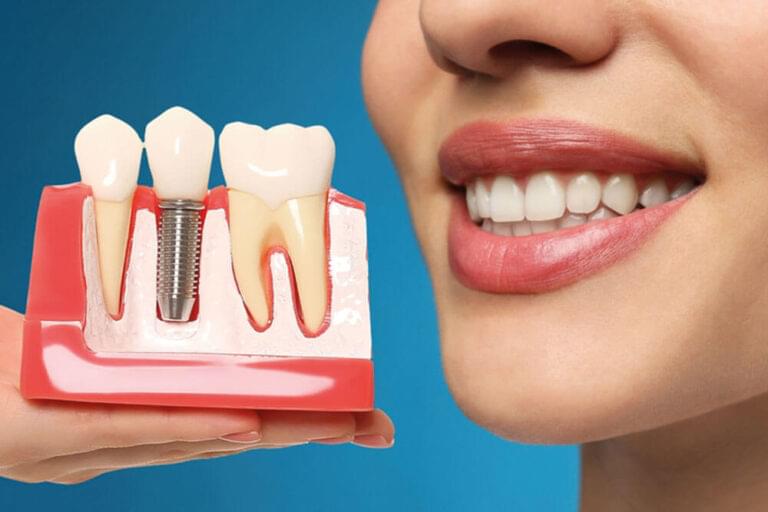

If you’re considering dental implants, you might be wondering: Why are they so expensive? As someone who values smart financial decisions, understanding the breakdown of costs can help you plan for this investment. Let’s explore what affects the cost of tooth implants and whether there are ways to make them more affordable.
The price of dental implants varies, but on average, the implant price for a single tooth can range between $3,000 and $6,000. Some clinics advertise $1200 dental implants, but these often don’t include necessary components like the abutment or dental implant crown cost.
When considering dental implants, you might ask, “How much does a tooth implant cost, and what goes into that price?” Unlike other dental procedures, implants require multiple components and steps, each adding to the final bill. Below is a detailed breakdown of the average price of dental implants and what you’re paying for.
The implant post is a small titanium or zirconia screw that is surgically placed into the jawbone. This acts as the artificial tooth root and provides a stable foundation for the replacement tooth. The cost of the implant post varies based on:
The abutment is a small metal or ceramic piece that connects the implant post to the final crown. Some implants come with a built-in abutment, while others require a separate piece, which can add to the implant fee. Custom abutments, designed to match your bite and gum line, tend to be more expensive than standard ones.
The dental implant crown cost depends on the material used. There are three main types:
High-quality, custom-milled crowns provide a natural look and long-lasting function, impacting the implant price.
Before the procedure, detailed X-rays or 3D imaging scans are necessary to assess bone density and ensure precise placement. These diagnostic tests add to the cost of tooth implants, especially if additional scans are required during follow-ups.
The implant fee also includes the expertise of your surgeon, the use of advanced technology, and the clinic’s overhead expenses. If sedation or general anesthesia is required, this further increases the one-day dental implants cost.
Each of these factors contributes to the average price of dental implants, making it a complex but worthwhile investment.
Implants are made from high-quality titanium or zirconia, ensuring durability and biocompatibility. Titanium is the most commonly used material due to its ability to integrate with the jawbone through osseointegration, creating a strong, permanent foundation. Zirconia, a metal-free alternative, offers a more natural appearance and is often preferred by patients with metal allergies. However, both materials are expensive due to their manufacturing precision and long-term durability, which impact the overall implant fee.
Not all implants are the same, and the types of dental implants cost structures vary based on the method used. The implant system you select will significantly affect the cost of tooth implants and how long the process takes.
The method you choose will greatly influence the final cost of tooth implants, so it’s important to discuss your options with a specialist to determine the best fit for your needs and budget.
The expertise of the professional performing the implant surgery is another major cost factor. While a general dentist may offer lower prices, an experienced oral surgeon or periodontist has specialized training in implant placement, improving success rates and long-term durability.
While it may be tempting to go with a general dentist for a lower upfront cost of tooth implants, investing in a highly trained specialist can prevent complications and additional expenses in the future.
Your dental implant crown cost isn’t just about the materials—it’s also about how well the crown is designed and customized to match your natural teeth.
Though a basic implant crown may lower the dental implant crown cost, investing in a custom, high-quality crown ensures a more natural look and longer-lasting results.
You may have seen advertisements for $1200 dental implants, but reading the fine print is important. These lower-cost options often:
Always ask what’s included in the quoted implant price to avoid surprises.
Although the average price of dental implants may seem high, here are a few ways to manage costs:
If you’re considering implants, it’s important to weigh the cost of tooth implants against the long-term benefits. Unlike dentures, implants:
✔ Preserve jawbone health
✔ Improve chewing ability
✔ Last decades with proper care
✔ Provide a natural look and feel
Though the average price of dental implants is an investment, they offer a lifetime of benefits that make them worthwhile.
When considering dental implants, focus on the total cost, not just the advertised price. Understanding dental implant crown cost, implant price, and one day dental implants cost can help you make an informed, financially sound decision.
Want to know your exact implant fee? Schedule a consultation with your dentist to explore your options and get a personalized quote.
Total Freedom is a custom solution and one of the most well recognized dental implants providers in Scottsdale and Phoenix.
We’re about providing the treatment that best fits you. That could mean a full set of new teeth. It could mean fewer implants than you anticipated. It could mean you don’t require any implants at all. When we can save the teeth you have, that’s what we recommend.
People travel from all over the country to Arizona for consultations and treatment with Dr. Kaiser. It’s unquestionably worth the trip.
Whether you’re seeking a first or second opinion, or even if you decide to choose another dental provider, a consultation with Dr. Kaiser will provide you with invaluable insights into your unique dental situation and the available options. You won’t be disappointed.
info@totalfreedomdental.com
Both dental implants and dentures have their pros and cons. And both dentures and dental implants have come a long way in the past 10
What Dental Implants Look Like: A Complete Guide to Natural Smiles Have you ever asked yourself, what do dental implants look like once treatment ends?
How Much Do Dental Implants Cost? Worrying about price is normal. It’s like standing in an auto repair shop after hearing a strange engine noise:

